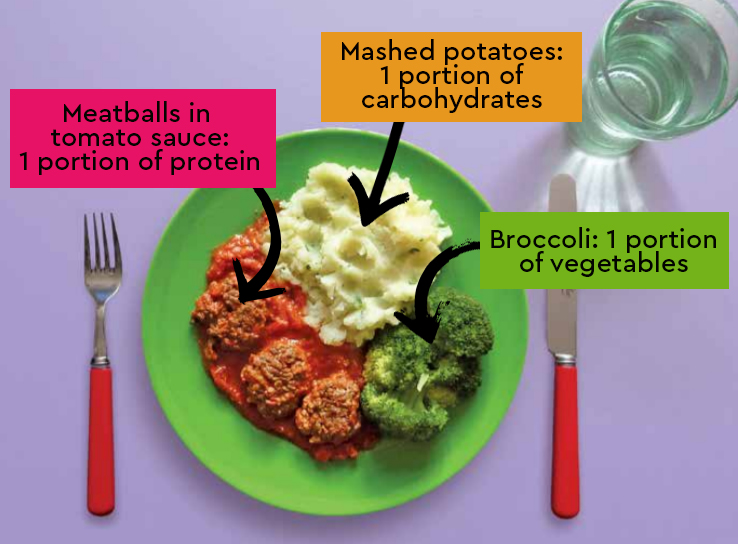How much should I eat during pregnancy?
During pregnancy, people around you may encourage you to have extra food or have larger portions because ‘you’re eating for two’. This is a common pregnancy myth and eating lots of extra food will not help your baby’s development during pregnancy.
In the first 6 months, most women do not need to eat any extra food to give their baby everything they need. The recommended daily calorie intake for a woman is around 2,000 calories a day. Once you get to the third trimester, you may need extra 200 calories, depending on how active you are.
Although calories can help us to understand how much energy we get from our food, it’s important to focus on having a healthy, balanced diet.
Our film can give you can idea of what a 200 calories snack might look like.
We have some ideas for healthy snacks that you can try to get your extra energy during the third trimester.
Pregnancy is not the time to be restrictive with food or to diet, as this can stop you and your baby getting the nutrients you need. If you have a high BMI or feel you need support with having a healthy diet, speak with your midwife about dietary and lifestyle advice to manage this safely in pregnancy.
It is important to remember not to put too much pressure on yourself when thinking about how much you are eating. This can lead to anxiety about weight gain and issues with your mental wellbeing. However, eating more foods that are high in sugar and fat can cause problems such as gestational diabetes and high blood pressure. So the best thing you can do for yourself and your baby is to focus on trying to eat a healthy, balanced diet.
There may be many reasons why you feel like you are unable to have a healthy diet during pregnancy, related to sickness or emotional wellbeing. If you feel like you are struggling, please contact your GP or midwife who can refer you to a nutritionist for extra support.
Example meal
A healthy, balanced diet is made up of 5 main food categories:
- Fruits and vegetables
- Carbohydrates including potatoes, bread, rice, pasta and other starchy carbohydrates
- Dairy or dairy alternatives
- Protein sources like beans, pulses, fish, eggs, meat
- Oils and spreads
You do not need to have this balance every day, but keeping to this as a guide will help you have a healthy, balanced diet. You can download a copy of the NHS Eatwell guide to help you plan a healthy diet.
Some sugary foods are not needed in our diet but we can eat them as a treat, in smaller amounts. These foods include chocolate, cakes, biscuits, sugary soft drinks, butter, ghee and ice cream. Find out more about having a healthy, balanced diet in pregnancy.
Here is an example of what a dinner plate might look like:

Find more ideas for healthy dinner plates including vegetarian and vegan options.
Managing portions away from the home
When choosing food away from the home it can be more difficult to manage portion sizes. Often portions served in takeaways, restaurants and cafes are larger and not the healthiest foods.
Find out more about choosing healthier options when eating out or getting a takeaway.
Crawley, Helen. (Second ed. 2017) Eating well for a Healthy Pregnancy. Published by First Steps Nutrition Trust.
National Institute for Health and Care Excellence (NICE). Weight management before, during and after pregnancy. Public health guideline [PH27] Published date: 28 July 2010 https://www.nice.org.uk/guidance/ph27/chapter/Recommendations#recommendation-2-pregnant-women
NHS Choices (accessed 20/10/20) What should my daily intake of calories be? https://www.nhs.uk/common-health-questions/food-and-diet/what-should-my-daily-intake-of-calories-be/#:~:text=An%20ideal%20daily%20intake%20of,women%20and%202%2C500%20for%20men.
Read more about having a healthy diet in pregnancy
-
Read more about 'Fasting in pregnancy '
Fasting in pregnancy
-
Read more about 'Understanding food labels '
Understanding food labels
-
Read more about 'Vegetarian, vegan and special diets in pregnancy '
Vegetarian, vegan and special diets in pregnancy
-
Read more about 'How to eat well in pregnancy '
How to eat well in pregnancy

